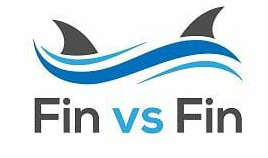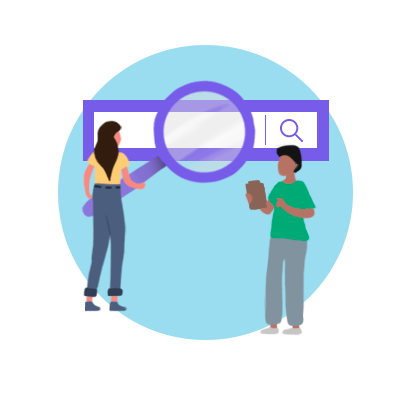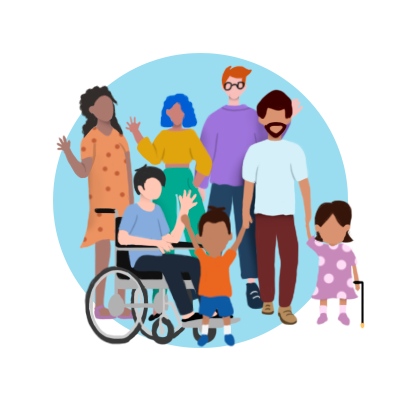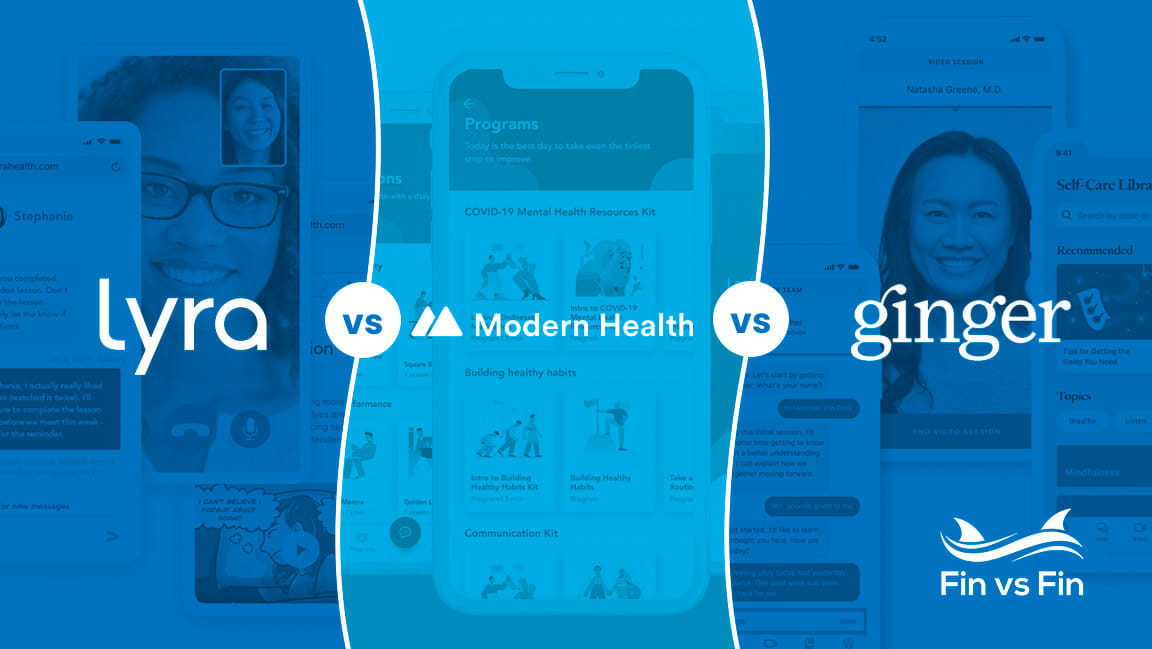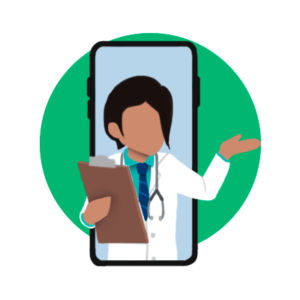If 2020 taught us anything, it’s the importance of mental health. Through the good, the bad, and the unprecedented, taking care of your mental wellbeing will have an overwhelmingly positive impact on your life, including productivity and performance at work. In search of ways to combat employee isolation and burnout as the pandemic raged on, many firms decided to make mental health a priority for everyone on the team. While “employee wellness” programs have been around forever, the shift of emphasis to mental health is truly unprecedented, and as you’ll see, way beyond employer-sponsored yoga classes or access to a premium meditation app.
B2B mental healthcare platforms like Lyra, Modern Health, and Ginger.io anticipated this trend, and have seen accelerated adoption in 2020. Due to social stigma around therapy / antidepressants, and the fact that many insurance plans don’t cover mental health treatment, too many hard-working employees forgo any form of mental health care. These newer digital platforms give companies the tools to offer these much needed services as an employee benefit — but which is most effective for motivation, reducing burnout, and ultimately retention? Let’s find out.
Mental health and the modern workforce
In past decades, workers came home from the office and couldn’t access their work even if they wanted to. They spent time with family and took ample personal time to unwind, but the realities of today’s always-connected workplace make separating personal and professional more difficult than ever.
WFH, as so many now abbreviate, presents a unique set of mental challenges as well, including feelings of isolation. We’re on zoom calls all day, sure but still feel a growing sense of loneliness. Human connection is important, and when workers are deprived of all in-person interaction, they may experience heightened anxiety and depression. We all know the feeling of zoom fatigue, and there are well-documented reasons for it, but there are also more subtle effects, such as the fact that not seeing each other physically working as much breeds distrust among teams (because how do you know if your colleagues are actually working hard any more?) that reduces psychological safety and increases stress. Thus the combination of reduced work-life balance and higher stress due to the global pandemic in general without a proper outlet for self care and reflection is the perfect storm for employee burnout.
Whether your team is still working remotely, back at the office, or operating with a hybrid model, mental healthcare is non-negotiable in maintaining a productive workforce. New B2B mental healthcare platforms promise to make high-quality care more accessible for workers to ensure that everyone receives the support that they need to perform their best. Before we dive into what each platform offers, here are details for any skeptical employers screaming “But I already pay for my employees’ health insurance…why would I need a separate mental health benefit?”
Why is it so hard to find insurance-covered mental health services?
When it comes to finding mental healthcare that’s covered by insurance, many people wind up both frustrated and without care. Many mental healthcare professionals don’t accept any insurance plans and don’t work with EAPs (employee assistance programs). Therapists that do work with EAPs often aren’t accepting new patients because they’re already at capacity. But, a single therapy session can cost over $200, which is financially unreasonable for most people out of pocket. The few professionals that do take insurance may only take certain plans, making it difficult to find a provider that’s:
- Nearby or in your area
- accepts your insurance coverage
- and is a good match for your individual healthcare needs
Providers also change the type of insurance that they accept, adding yet another obstacle for patients who need ongoing, consistent care.
B2B mental health platforms eliminate all this hoop jumping that currently deters employees from finding a quality therapist or counselor that accepts whatever insurance plan(s) your company offer(s).
Lyra vs Modern Health vs Ginger: Comparing the best employee mental health platforms
Curious what each platform has to offer employees? Below we compare Lyra, Modern Health, and Ginger.io head to head.
B2B Mental Health Benefit Platforms: Lyra vs Modern Health vs Ginger.io | |||
|---|---|---|---|
| Employees can access | Guided self-care, mental health coaching, 1-1 therapy | Digital resources, behavioral health coaching, 1-1 therapy | Behavioral coaching, skill-building activities, and 1-1 therapy |
| Average time to match with a coach | 5 minutes | Instant | Instant |
| Average time to match with a therapist | 5 minutes | 12 hours | 10.5 hours |
| Available in how many countries / languages? | US | Over 35+ | 23 |
| Option for in-person therapy? | ✔️ | ✔️ | ❌ |
| Website |
Lyra Health review: clinically proven methods for mental health
Source: Lyra Health
Lyra is a mental health solution with flexible care options and a convenient digital platform. It provides a full range of care options for all types of mental healthcare needs, from preventative to severe. Since early 2015, Lyra has been partnering with an impressive set of companies across the United States and now boasts over one million members.
What kind of mental health services does Lyra Health offer?
- Guided self-care: This care option is self-paced and convenient. You’ll start with a coach consultation, followed by a personalized six-week care plan featuring tailored activities and video lessons that you can complete whenever you have the time.
- Mental health coaching: Coaching from Lyra is intended as short-term mental health support by certified coaches. This option is ideal for mild or temporary concerns like life changes, relationships, and stress. Lyra coaching can be completed by live messaging or live video.
- Evidence-based therapy, either via video sessions or onsite: Lyra therapy is provided by leading, highly-vetted providers that use only evidence-based treatments like Cognitive Behavioral Therapy and Dialectical Behavioral Therapy. Treatments for adults, children, couples, and families are available. You can also complete therapy sessions in-person or through live video.
- Medication management: In addition to these fundamental mental healthcare services, Lyra offers critical incident support, manager training, and work-life services. All of these care options are supported by evidence-based methods.
What therapy, coaching, or general clinical methods does Lyra Health use?
Lyra strictly sticks to proven clinical methods to measure progress in the treatment of anxiety, depression, and other prevalent mental health conditions. PHQ-9 and GAD-7 are two of the clinical measures Lyra uses. These questionnaires provide important insight into patients’ symptoms so that care providers can conduct further assessment and determine the best course of treatment.
- PHQ-9 (Patient Health Questionnaire-9): This questionnaire is a straightforward and easy-to-complete assessment to gauge the severity of depression in a patient. By using this questionnaire, Lyra can effectively measure a case of depression to help make sure that the patient receives adequate care.
- GAD-7 (General Anxiety Disorder-7): This questionnaire is used to efficiently screen patients for anxiety disorders, including generalized anxiety disorder, personality disorders, post-traumatic stress disorder, and sensory processing disorder.
These, along with other validated clinical measures, make up Lyra’s strategy for providing “reliable clinical improvement”. By assessing changes in symptoms, Lyra helps patients progress and alleviate stress, anxiety, and/or depression.
Lyra also only works with providers that use evidence-based treatments, or EBTs. These methods have been proven effective at symptom reduction and improving overall functioning. EBTs are characterized by:
- Goal-focused treatment
- Practice between sessions
- New skill development
- Tracking progress toward goals
- Both short- and long-term results
Modern Health review: A proactive approach to mental health
Source: Modern Health
Modern Health considers mental health with a spectrum ranging from green to yellow to red. Where you fall on this spectrum will vary through different stages of life. By consistently measuring patients’ healthcare needs, Modern Health aims to direct patients to the right level of care at any given point in their lives.
The traditional approach to mental healthcare involves high-cost psychotherapy and medication management. But, this degree of treatment isn’t necessary for all patients. Modern Health acknowledges that not all your employees need to see a therapist because not everyone is struggling with clinical conditions like anxiety and depression. Of course, for those that are, licensed therapy is available, but one of the things that sets Modern Health apart is their proactive approach to improving the mental health of all employees, not just those suffering most.
What makes Modern Health’s approach to mental health for companies unique?
For a more efficient and cost-effective approach to mental healthcare, Modern Health uses a different approach using advanced technology and research. It encourages users to be proactive with mental healthcare so that they can become more resilient to triggers for stress, anxiety, and depression.
Modern Health offers three main services:
- Digital resources: For patients with mild mental health concerns or who want preventative care, Modern Health offers digital resources. With these resources, patients don’t need to engage with anyone and can access mental health resources on their own. Meditations, audio therapy, and digital courses are examples of available resources.
- Behavioral health coaching: Behavioral health coaching is ideal for patients who need help with day-to-day or situational stressors. Coaching involves behavioral motivation and behavioral activation to engage with a wider popular than just those who need help for clinical issues. Modern Health works with coaches who are certified through ICF and have been vetted by Modern Health’s VP of clinical care, Myra Altman.
- Therapy: Therapy through Modern Health is designed for patients with clinical mental health issues, such as anxiety and depression. Modern Health works with licensed clinicians with an advanced degree in clinical psychology. These therapists use evidence-based techniques, and you can attend sessions with your clinician either over a video call or in-person.
How does Modern Health determine if members need coaching or therapy?
To determine each patient’s needs, Modern Health provides a clinically-validated self-assessment. Based on the self-assessment, patients receive a personalized treatment plan that combines digital programs, group learning, and one-on-one coaching and/or therapy.
Modern Health has built up a foundation of mental healthcare research that’s both peer-reviewed and cost-effective. With decades of scientifically-proven research on the treatment of depression, anxiety, and other common mental health conditions, patients can feel confident that they’re getting a high caliber of care. Plus, employers can feel good in knowing that Modern Health uses cost-effective tactics that yield noteworthy results.
Ginger for Business review: Giving employees easy access to mental health services
Source: Ginger.io
When it comes to Ginger, accessibility of care is king. Using this platform, patients can access a behavioral health coach in mere seconds. Within hours, patients can have a video therapy or psychiatry session. Therapy sessions are available on weekends and evenings, making it easy for users to find an appointment in their busy schedules. Additionally, Ginger provides immediate access to support 24/7/365 in all 50 U.S. states and 23 countries. So, wherever employees are, whether it’s a holiday or the middle of the night, they can access mental healthcare with just their phone.
What makes Ginger’s behavioral coaching and clinical psychiatry combination different?
Since Ginger has a collaborative approach to care using both behavioral health coaching and clinical psychiatry, it can help employees tackle a broad spectrum of concerns, from day-to-day stressors, work problems, and relationship concerns to anxiety and depression. Ginger aims to give users the appropriate level of care at the right time.
- Skill-Building Activities: Another component of Ginger is skill-building activities. The user’s coach will pick out activity cards (from over 100 available cards on Ginger) based on the user’s unique needs. The cards contain clinically-validated exercises to strengthen anxiety- and stress-management skills. Plus, each activity takes only around five minutes to complete. Users can access these cards at any time with the app and the exercises will complement what they’re already working on with a coach.
- An Advanced Virtual Platform: The Ginger virtual platform is built upon proprietary technology using the largest mental health data set in the world. The platform measures users’ progress by gathering and measuring information from care sessions while collecting users’ insights. This system tracks each user’s mental health progress to provide a higher level of care. But, rest assured: Users’ activity is confidential, with data privacy protected by law.
The Verdict: Which mental health benefit platform is best — Lyra, Modern Health, or Ginger?
Lyra, Modern Health, and Ginger all provide fantastic benefits as B2B mental healthcare platforms. While all make it easy for employees to access quality therapist and online resources, we recommend Modern Health for its focus on proactive mental healthcare. With a thoughtful combination of resources and a thorough vetting process for all coaches and therapists, Modern Health can provide the right degree of care for a broad range of patients, not just the minority who are suffering acute or chronic mental illness.
If you have any experience with Lyra, Modern Health, or Ginger — either as an employee member or an employer administering mental health benefits to your staff — we’d love to hear your thoughts! Please leave a comment below or send us an email.
Discover more innovative mental health services

Average Health Coach Salary: Insights for Those Wondering If This Career Is Worth It
With an average yearly salary of $55,672 in the U.S., health coaching is a worthwhile career for those interested in the health and wellness space

What to Expect From a Life Coach and How to Get the Most Out of Your Coaching Experience
Life coaching has emerged as a strategy for overcoming personal and professional challenges. Distinct from therapists and counselors, life coaches focus on helping their clients

Topics to Be Coached On: Discovering What People Want From Coaching
People seek out the services of coaches for a multitude of reasons. Individuals may seek out coaches to assist them in working towards specific or
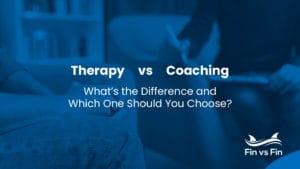
Coach vs. Therapist: What’s the Difference, and Which Is Right for You?
Key Takeaways: Therapists have advanced degrees and formal licensing; coaches may have varied backgrounds and certifications. Therapy focuses on mental health, while coaching focuses on

PlushCare Anxiety Review: Is It Best for Online Therapy & Anxiety Meds?
Telehealth platforms, like PlushCare, allow you to prioritize your mental health in a more convenient and affordable way. With PlushCare’s online platform, you won’t
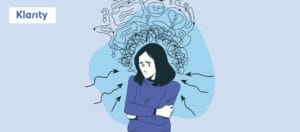
Klarity Anxiety Review – Pros, Cons, Alternatives, & More
Affecting over 40 million American adults each year, anxiety is one of the most common mental health conditions. Regardless of the type of anxiety condition,
